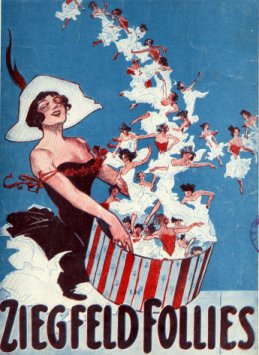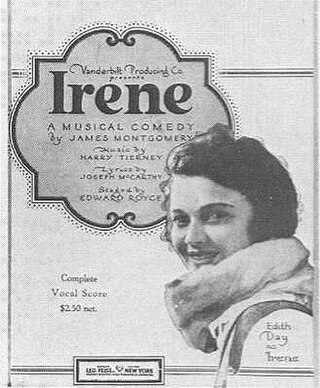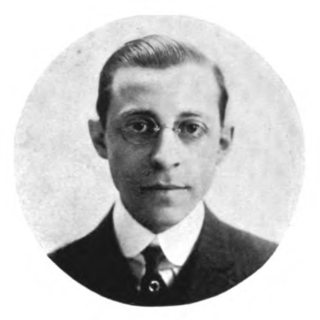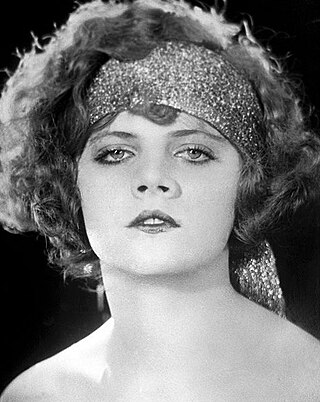
The Original Dixieland Jass Band (ODJB) was a Dixieland jazz band that made the first jazz recordings in early 1917. Their "Livery Stable Blues" became the first jazz record ever issued. The group composed and recorded many jazz standards, the most famous being "Tiger Rag". In late 1917, the spelling of the band's name was changed to Original Dixieland Jazz Band.
This is a list of notable events in music that took place in the year 1919.

Jean Schwartz was a Hungarian-born Jewish American composer and pianist. He is best known for his work writing the scores for more than 30 Broadway musicals, and for his creation of more than 1,000 popular songs with the lyricist William Jerome. Schwartz and Jerome also performed together on the vaudeville stage in the United States; sometimes in collaboration with Maude Nugent, Jerome's wife, and the Dolly Sisters. Schwartz was married to Jenny Dolly from 1913 to 1921.

The Ziegfeld Follies were a series of elaborate theatrical revue productions on Broadway in New York City from 1907 to 1931, with renewals in 1934, 1936, 1943, and 1957. They became a radio program in 1932 and 1936 as The Ziegfeld Follies of the Air.

Van and Schenck were popular American entertainers in the 1910s and 1920s: Gus Van, baritone, and Joe Schenck (pronounced "skenk"; born Joseph Thuma Schenck,, tenor. They were vaudeville stars and made appearances in the Ziegfeld Follies of 1918, 1919, 1920 and 1921. They made numerous phonograph records for the Emerson, Victor, and Columbia record companies.

Charles Luckyth Roberts, better known as Luckey Roberts, was an American composer and stride pianist who worked in the jazz, ragtime, and blues styles. Roberts performed as musician, band/orchestra conductor, and dancer. He taught music and dance. He also owned a restaurant and bar in New York City and in Washington, D.C. Luckey Roberts noted compositions include "Junk Man Rag", "Moonlight Cocktail", "Pork and Beans" (1913), and "Railroad Blues".

A shimmy is a dance move in which the body is held still, except for the shoulders, which are quickly alternated back and forth. When the right shoulder goes back, the left one comes forward.

Gilda Gray was a Polish-American dancer and actress who popularized a dance called the "shimmy" which became fashionable in 1920s films and theater productions.
Chicago Musical College is a division of the Chicago College of Performing Arts at Roosevelt University.

Thomas Joseph McCarthy was an American lyricist whose most famous songs include "You Made Me Love You", and "I'm Always Chasing Rainbows", from the now-forgotten Oh, Look! (1918), starring the Dolly Sisters, based upon the haunting melody from the middle section of Chopin's Fantaisie-Impromptu.
Louis Achille Hirsch, also known as Louis A. Hirsch and Lou Hirsch, was an American composer of songs and musicals in the early 20th century.

John W. Steel was an American tenor. He was featured in the Ziegfeld Follies of 1919 and 1920 and Irving Berlin's Music Box Revues of 1922 and 1923.

Edythe Baker (1899–1971) was an American pianist and dancer.

David Stamper was an American songwriter of the Tin Pan Alley and vaudeville eras, a contributor to twenty-one editions of the Ziegfeld Follies, writer for the Fox Film Corporation, and composer of more than one thousand songs, in spite of never learning to read or write traditional music notation. He may have written "Shine On Harvest Moon", a claim supported by vaudeville performer and writer Eddie Cantor. He was also a charter member of the American Society of Composers, Authors and Publishers or ASCAP.
Roger A. Graham was an American lyricist, composer, singer, and music publisher who flourished from 1906 to 1920 — a period that included World War I, the golden age of Tin Pan Alley, the dawn of the Jazz Age (circa 1914), and the silent film era. Graham was a proponent of vaudeville and burlesque songs. But as a lyricist and publisher, Graham is most remembered for having been an exponent of blues songs.
The Ziegfeld Follies of 1919 was a revue produced by Florenz Ziegfeld Jr. Billed as the thirteenth edition of the Ziegfeld Follies series, it had a tryout at Nixon's Apollo Theatre in Atlantic City, New Jersey, on June 10, 1919 and opened at Broadway's New Amsterdam Theatre on June 16, 1919 and closed on December 6, 1919. It is often considered to be the best and most successful of the Follies series produced by Ziegfeld.

The Elmwood Casino, once known as the "Showspot of Canada," was a nightclub situated on Dougall Avenue in Windsor, Ontario. It was located not far from Detroit, just across the Detroit River.

Al Siegel was a Canadian musician and businessman. He owned the Elmwood Casino, Windsor Raceway and the Blue Room in Toronto. Siegel was also the owner of a Canadian jukebox business.

Hilda Ferguson was an American dancer and showgirl.

Gladys Feldman was an American actress, dancer, and showgirl.















